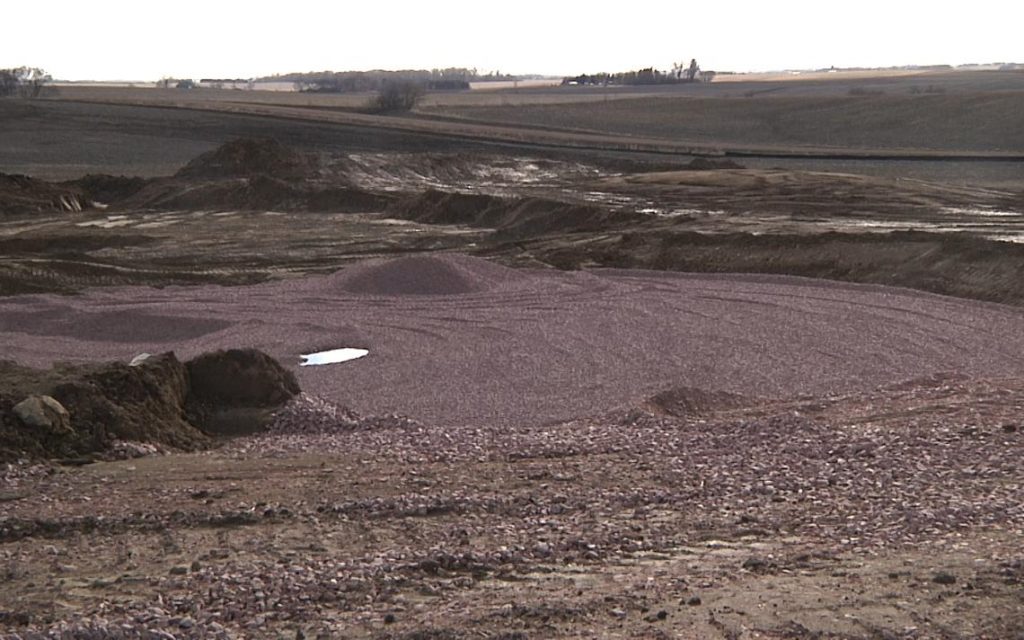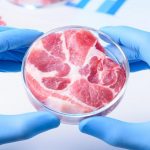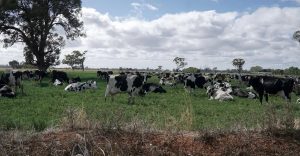
South Dakota dairy producer Lynn Boadwine could not have anticipated the growth his dairy operation would experience when he started his 42-cow herd near Baltic in 1986. Thirty-five years later, the operation has expanded to around 10,000 cows over various sites in the state.
With that growth the dairy has also had mounting pressure to be more environmentally responsible, but especially now with the push for climate change policy by the Biden administration.
But even before 2021 Boadwine had made the decision to partner with Brightmark LLC and construct methane digesters at all of the farm’s facilities. One of the systems is currently under construction at Boadwine Dairy, which is the home farm at Baltic, where they currently milk 2,400 head.
Boadwine said this is an opportunity to capture methane and lower the carbon footprint of his operation.
“It’s using a renewable fuel, taking our manure, heating it, capturing the methane and turning that methane into usable fuel, putting it back into the natural gas pipelines so consumers can use it,” he said.
Boadwine said regardless of political affiliation, the move to more sustainable farming systems was on the way. The movement is being pushed at the ground level by consumers who want to know not only where their food comes from, but that it was produced with the utmost care for the planet.
“People are concerned about the environmental footprint of where their food comes from,” he said.
Boadwine is approaching climate change policy as an opportunity for his operation, not a negative. He thinks it can be the same for the entire agriculture industry. The key, according to Boadwine, is for farmers to get in on the ground floor and set the course.
“You know you hear a lot negative around the way it’s changing, but you’ve got your head in the sand if you don’t hear all the concern from the consuming public about environment,” he said.
With the heightened awareness about climate change, both the administration and Congress are working on policy. At the same time a long list of private companies and platforms have surfaced that are working to monetize or trade carbon, methane and other renewable energy sources. The newness of these companies has many farmers and ranchers inherently curious or even skeptical about whether there is money to be made capturing carbon or, for that matter, methane.
Boadwine said, for him, the real profitability of the technology may need to be proven out over time. The early income projections from installing the methane digesters at his dairy operations are around $50 per cow. While that may seem like a lot of money, he said it will take quite a while to recover the upfront investment in the methane capturing technology.
“You know, in agriculture, we’re always starved for capital, and these are highly capital intense projects. That’s why we’re partnering with somebody,” he said.
Brightmark LLC and Chevron U.S.A. announced Feb. 17 the expansion of their joint venture to own projects across the United States to produce and market dairy biomethane, a renewable natural gas (RNG). The venture owns projects in South Dakota, Florida, New York and Michigan and is expanding to Arizona and eventually internationally.
The company uses anaerobic digestion technology to capture raw biogas, clean it, upgrade it and compress it into RNG. Chevron will purchase RNG produced from these projects and market it for use in vehicles operating on compressed natural gas.
Brightmark claims agriculture accounts for 10% of all greenhouse gases, and their research shows that when all climate benefits are considered together, RNG from dairy manure can reduce greenhouse gas emissions 400%, when it is used to replace traditional vehicle fuels.
Boadwine said this is the main reason they chose to participate in the methane digester project and work with Brightmark.
“The largest necessity in life is food, and it has an environmental footprint. Where the farmer is making the food, little changes make big changes to the global environmental footprint,” he said.























